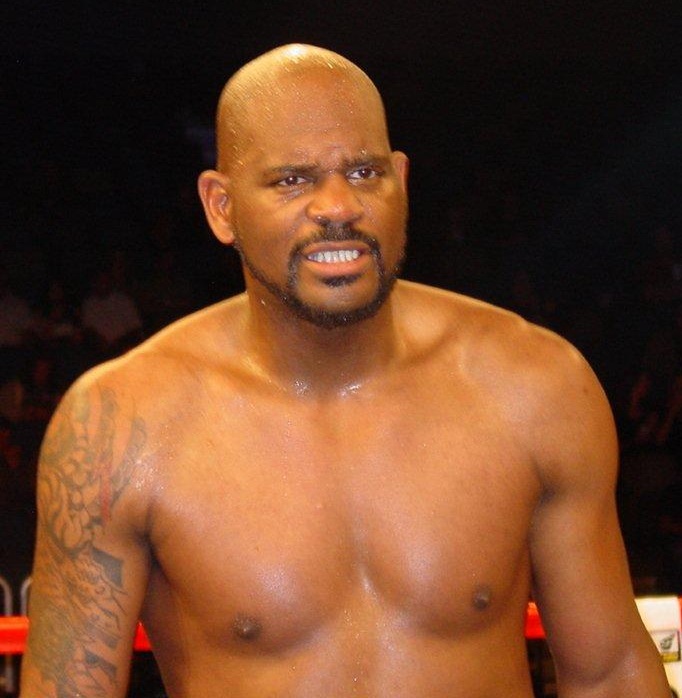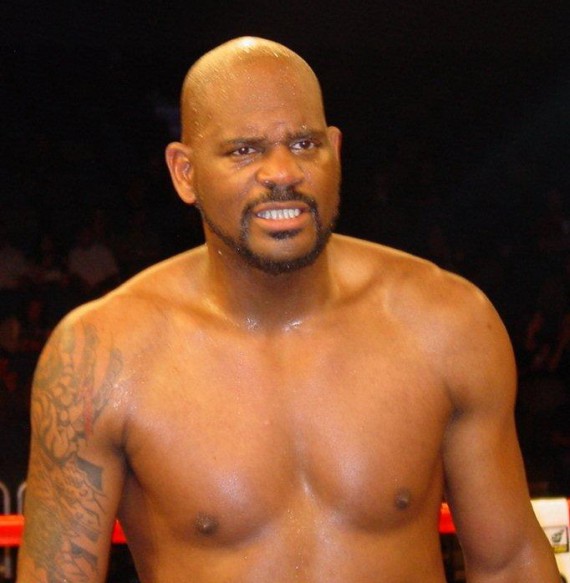
American heavyweight Tony Thompson has come under heavy criticism after advocating the legalization of anabolic steroids in the sport of boxing. Thompson is in Liverpool to face David Price. His controversial statements regarding doping were aired on BBC Radio 5 Live Breakfast on February 21, 2013.
“I know this is going to be kind of controversial for people, I think they should just allow doping, period. Because to me it’s like the gun law. Only the good guys are listening, so it leaves the good guys without the guns.So you just allow everybody… it’s an issue of choice.”
The opposition to legalizing performance-enhancing drugs (PEDs) in boxing and other combat sports is based on the argument that PEDs would endanger lives. This overly-simplistic argument conveniently overlooks the fact that the nature of combat sport itself is far more dangerous than steroids.
It is not necessarily the steroids that make boxing dangerous. It is the sport itself. And anything that enhances performance increases the risk of harm to its participants. PEDs are only one of many factors that enhance performance.
Given the inescapable nature of combat sports, handicapping performance may be the only solution to reducing the level of harm.
Theoretically, the prohibition of steroids and other PEDs would seem like one effective way to accomplish this goal. (Alternatively, banning weight training would probably be even more effective; if weight training were eliminated, the steroids wouldn’t matter as much.)
The flaw with this approach is that the enforcement of anti-doping rules has never been very effective. If testing worked, that would be one thing. But the inability of drug testing to stop PED use across the sports world has rendered the anti-doping approach a major failure.
Thompson’s proposal for the legalization of PEDs was based in part on the unenforceability of existing anti-doping rules in the sport. Boxers who follow the rules are at a disadvantage when fighting boxers whose steroid use is going undetected.
Using Thompson’s analogy, the current state of anti-doping is such that some “unarmed” boxers are unwittingly forced into a gun-fight. If regulators are unable to stop dishonest parties from regularly sneaking in guns, it should simply be openly advertised as a gunfight with both parties loaded. If not safer, it would at least be a more honest, level playing field.
Thompson cynically suggested that issues of fairness and harm reduction may take a back seat to society’s demand to be entertained and the sport’s attempt to supply it.
“Sports is what it is – it’s entertainment. It’s like having too many special effects in a movie. You go to the movies to be entertained; you watch sports and you ask to be entertained and we want our athletes to be the biggest, the baddest they can be – regardless of how level the playing field is – and in the end we want our athletes to be heroes and to be great and to be bigger than life.”
Finally, Thompson argued that regulating doping may be much more effective (and safer) that the prohibition of doping.
“Some of the things we use to dope actually helps the body. If the athlete was allowed safe levels of most of this stuff it would not only enhance their careers it would enhance their life after sports.”
Managing harm in a risky sport is a complicated issue. Unfortunately, few people are willing to openly address the issues involved.
Robert Smith, the Secretary of the British Boxing Board of Control, and Frank Maloney, the boxing promoter representing Price, expressed their indignation at the issues raised by Thompson when contacted by Telegraph Sports.
Smith said he was “sickened” by Thompson’s “irresponsible” comments.
“It’s mindblowing that a fighter who has challenged twice for the world title can come out with something like this. I felt sickened, to be honest, when I heard the comments.”
Maloney said Thompson’s comments were “stupid.”
“It’s surprising coming from an athlete who has fought at the top level and twice for a world title. To come out with comments like this is just stupid.”
An open discussion of the failure of prohibition, the unenforceability of anti-doping rules and proposals for alternative solutions is clearly not welcome. Rather a commitment to the same failed policies seems to be the only politically correct position.

About the author
Millard writes about anabolic steroids and performance enhancing drugs and their use and impact in sport and society. He discusses the medical and non-medical uses of anabolic-androgenic steroids while advocating a harm reduction approach to steroid education.

Leave a Reply
You must be logged in to post a comment.